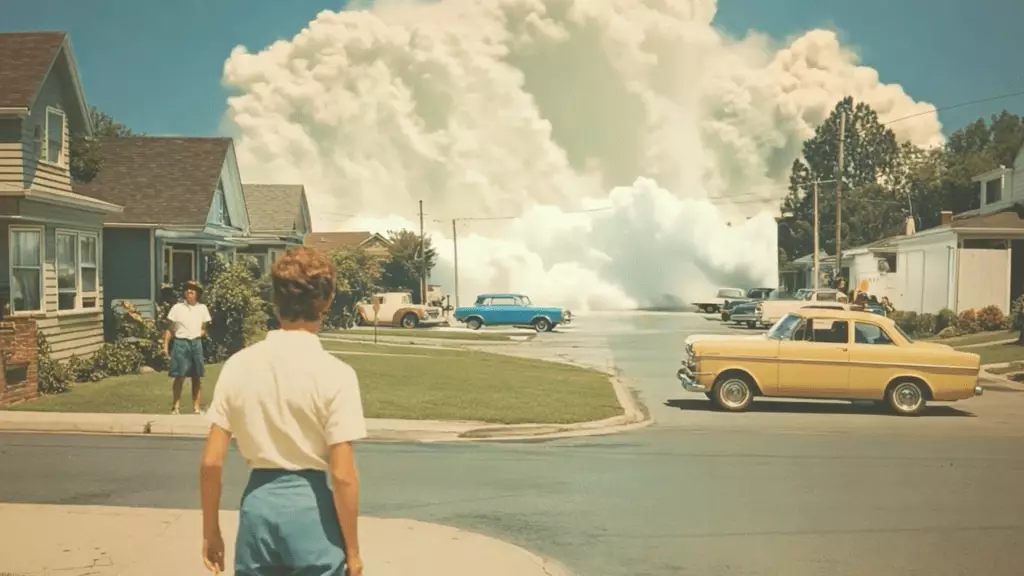The art of filmmaking, where imagination reigns supreme, has always been a playground for innovation. Recently, this playground has been invaded by the ever-persistent specter of artificial intelligence. At the AI Film Festival held in New York City, the latest zephyr of technological advancement was brought to the forefront. Jacob Adler’s mesmerizing, essayistic film, *Total Pixel Space*, triumphed as the festival’s crown jewel, showcasing how AI can weave complexity into visual storytelling. But as humanity grapples with the implications of this extraordinary fusion between creativity and machine learning, we must question: Is this truly a renaissance for artists, or are we courting catastrophe?
The Festival’s Meteoric Growth
Set in the revered Alice Tully Hall, iconic for hosting some of cinema’s most prestigious events, the third annual AI Film Festival was no small affair. The rapid rise in submissions—from 300 in its inaugural year to an astounding 6,000—signals a growing international curiosity. Industry stakeholders, including Runway’s ambitious CEO, Cristóbal Valenzuela, express the kind of enthusiasm that borders on euphoria. However, amidst the celebration, an undercurrent of unease lurks. Is this frenzied expansion of the festival merely symptomatic of a trend, or does it reflect a more profound shift in the creative environmental landscape?
Valenzuela’s assertion that AI is reshaping culture and art is worth scrutinizing. While the excitement of technological advancement can generate momentary euphoria, the ramifications of such shifts may bleed into the very essence of what it means to create art. The danger lies in the possibility of diluting human creativity, where algorithms dictate the direction of expression rather than artists fueling innovation through their lived experiences and emotions.
A New Era of Creativity or Algorithmic Conformity?
At the festival, notable figures like Steven Ellison, better known as Flying Lotus, enthusiastically endorsed AI as a tool that democratizes creativity. “I don’t like walls and boundaries and gatekeepers,” Ellison states. This voice of liberation raises a pertinent question: Are we genuinely dismantling barriers, or are we paving the way for new gatekeepers in the form of sophisticated algorithms?
Ellison praised the serendipitous nature of AI filmmaking, suggesting that creators can unknowingly stumble upon brilliance without a predefined vision. While the concept of creative freedom is enticing, fear lingers that such spontaneity may lead to homogenization of ideas. If filmmakers increasingly rely on AI-generated prompts and suggestions, will we see the death of unique voices and narratives? If a computer can generate character complexes and plot twists, do we risk reducing the art of storytelling to mere computation and replication?
Art as a Reflection of Society
Films at the festival varied in visual style and narrative complexity, with many leaving a dreamlike aftertaste. Notably, Andrew Salter’s runner-up piece, *Jailbird*, provided a stark contrast to the psychedelic tendencies exhibited by many entries. This documentary-style film depicted a poignant initiative in the UK that pairs prisoners with chickens for mutual benefits, a reminder that technology should serve humanity’s higher ideals.
Yet, one must question the responsibility of this emerging technology; is it simply a vessel for showcasing vivid visuals, or is it capable of encapsulating the nuanced human experience? In the race to embrace AI, are we straying from the depth and authenticity that has defined compelling storytelling throughout cinema history? Each film displayed at the festival, while technologically impressive, highlights a haunting tension: the superior capabilities of machines may overshadow the raw human narratives that have long captivated audiences.
In pursuing a brighter, more innovative future, one must tread cautiously between celebration and caution. As we welcome AI into our artistic folds, we must also remain vigilant stewards of human creativity, ensuring that this extraordinary partner does not eclipse the very essence that has made storytelling profound for centuries. Whatever comes next must enrich the art form without sacrificing its soul.


Leave a Reply